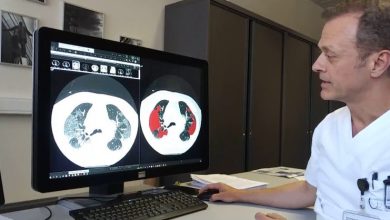Things You Need About Cataract

A cataract refers to opacity in the lens of your eye. The lens is a transparent structure behind your iris- the colored part of your eye. It helps in refracting the light rays that the eye receives such that they join at one point on the retina and form a clear image. Simply stated, the lens helps you see clearly.
Both eyes may develop cataracts. Sometimes, newborn babies are born with cataracts (congenital cataracts). Cataracts can also develop later in life (acquired cataracts). In adults, cataract is more common in older individuals.
Cataract impairs your vision and thereby interferes with your day-to-day tasks. It increases the risk of falling, and activities like driving can be dangerous. Therefore, it is essential to get your cataract treated. In children, if a cataract is not treated on time, it can result in permanent blindness.
If you or your child have symptoms of cataracts, it is essential to consult an eye specialist. You can consult the Best Eye Specialist in Lahore.
Symptoms Of Cataracts
The symptoms of cataracts include:
- Blurred vision
- Fogging of vision
- Trouble seeing in dim light
- The appearance of halos around lights
- Sensitivity to glare
- Need to get prescription glasses changed often
- Double vision in the eye with a cataract
The symptoms of cataracts develop over time as the opacity becomes larger. Initially, when the cloudiness is tiny, you may not notice any vision disturbance. When the cataract grows and comes in the path of the light rays entering your eyes, you will have trouble with your normal vision.
What Causes Cataracts?
There are different causes of cataracts, such as:
- Age
- Family History
- Trauma to the eye
- Radiation exposure
- Family history
- Cigarette smoking
- Alcohol intake
- Taking corticosteroids (Oral, ointments, drops, or inhaled)
- Undergoing eye surgery
Risk Factors Of Developing Cataracts
Factors that increase the risk of developing cataracts are:
- Increased age
- Sunlight exposure
- Diabetes
- Hypertension
- Being obese
- Trauma to the eyes
- Cigarette smoking
- Drinking alcohol
Treatment Of Cataracts
Doctors treat cataracts surgically. There is no definite non-surgical treatment for cataracts. With modern surgical advancements, cataracts are removed with minor surgery, and you may be able to go home the same day.
The modern-day technique that is mostly used is called phacoemulsification. Most cataract surgeries are performed under local anesthesia, which means you will not be unconscious. Your doctor will give injections around the eye for local anesthesia. You will not feel any pain but will remain conscious, and can communicate with your doctor throughout the procedure.
Your doctor will make a small incision and remove cataracts. The incision is so minute that it can heal without stitches. Your doctor will remove cataracts, and insert a new lens known as an intraocular lens (IOL) in place of the old lens.
There are different types of intraocular lenses available. Your doctor will choose which is best for you after discussing it with you.
Conclusion
Cataract affects your vision, which affects your quality of life. Performing tasks that require clarity of vision, like driving, can become very problematic and might result in accidents. Daily activities like reading become difficult. The risk of falls, especially during the night, increases. Visual impairment and impaired quality of life may cause you to feel depressed.
It is important to consult your doctor and get your cataracts treated. If your cataracts are not treated on time, they may end up in different complications and even blindness. A complicated case of cataracts becomes challenging to remove surgically, making things difficult.
Seeking early treatment for cataracts is of great importance to protecting your normal vision. If you have cataracts, you should consult an eye specialist. You can consult an Eye specialist in Islamabad.





